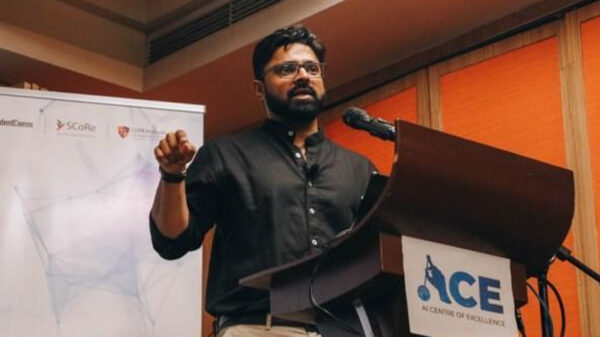By 2021, Artificial Intelligence (AI) will allow the rate of innovation of Filipino companies to increase by 1.7 times, and nearly double employee productivity gains in the Philippines, according to the study entitled Future Ready Business: Assessing Asia Pacific’s Growth Potential Through AI1.
The study made by Microsoft and International Data Corporation (IDC) Asia/Pacific surveyed 109 business leaders and 100 workers in the Philippines.
While close to 90% of business leaders polled agreed that AI is instrumental for their organization’s competitiveness, only 45% of organizations in the Philippines have embarked on their AI journeys. Those companies that have adopted AI expect it to increase their competitiveness by 1.5 times in 2021.
“AI is the defining technology of our time that significantly accelerates business transformation, enables innovation, boosts employee productivity, and ensures further growth. Economies and businesses that have yet to embark on their AI journey run a real risk of missing out on the competitive benefits that are enjoyed by leaders,” said Ricky Kapur, Microsoft Asia Pacific’s Enterprise and Partners Group General Manager.
Fig 1: AI impact on rates of innovation and employee productivity improvements today and in three years
Why adopt AI?
For the organizations that have implemented AI initiatives, the top five business drivers to adopt the technology were (in priority order): better customer engagements (27% of business leaders named it as number one driver); accelerated innovation (24%); higher competitiveness (16%); more productive employees (10%); as well as higher margins (8%).
IDC Philippines Head of Operations Randy Roberts said: “Last year, organizations that have adopted AI saw tangible improvements in those areas in the range of 22% to 44%. They forecast further improvements of at least 1.5 times in the three-year horizon, with the biggest jump expected in higher margins, accelerated innovation, and more productive employees.”
Fig 2: AI improves business today and in three years
PH needs to urgently focus on AI investments and data
The study evaluated six dimensions critical to ensuring the success of a nation’s AI journey: data, strategy, investments, culture, capabilities, and infrastructure.
It uncovered that the Philippines needs to focus on improving on all areas, particularly its investments and data to accelerate its AI journey.
“The Philippines is not yet ready for AI. The Philippines needs to substantially improve its readiness. Organizations’ leadership should make AI a core part of their strategy and continuously invest in this transformative technology for the long-term success, sometimes without immediate returns,” Roberts stressed.
Business leaders who are adopting AI face three top challenges: (1) a lack of thought leadership and leadership commitment to invest in AI; (2) lack of skills, resources, and continuous learning programs; and (3) lack of advanced analytics or adequate infrastructure and tools to develop actionable insights.
The study showed that to move ahead on their AI journeys, businesses have to create the right organizational culture. A significant proportion of business leaders and more than half of workers surveyed believe that cultural traits that support AI journeys, such as risk-taking, proactive innovation, as well as cross-function partnerships among teams, are not pervasive today. “Overall, workers in the Philippines are more skeptical than business leaders about the cultural readiness of their organizations,” noted Roberts.
Fig 3: Cultural Traits in an Organization to Support AI Journeys
Addressing skills challenge for an AI-enabled workforce
The study found that business leaders and workers in the Philippines hold positive viewpoints about AI’s impact on the future of jobs. Majority (74% of business leaders and 74% of workers) believe that AI will either help to do their existing jobs better or reduce repetitive tasks.
17% of business leaders believe that AI will create new jobs, while 8% also feel that the technology will replace. Interestingly, workers are more optimistic, with only 5% expecting AI to replace jobs, and 15% to create new ones. At the same time, 6% of workers expect no impact to their jobs in three years from now.
The study also found that workers are more willing to reskill than business leaders believe they are. 16% of business leaders felt that workers have no interest to develop new skills, whereas only 4% of workers are not interested.
Fig 4: Perception of AI’s impact on jobs (Business Leaders and Workers)
“Microsoft’s vision for AI is first and foremost about people. AI technology cannot progress without them. This means that millions will need to transform themselves into skilled workers as well as learners that an AI future needs,” declared Kapur. “It is heartening to see that 88% of businesses prioritize skilling and reskilling of workers in the future. They plan to invest as much, or even more, in human capital than in new technology.”
“The jobs of today will not be the jobs of tomorrow, and we have already seen demand for software engineering roles expand rapidly beyond just the tech sector. However, building an AI-ready workforce does not necessarily mean an acute need for technological skills,” Kapur added.
The top future skills required by business leaders in the Philippines include digital skills, IT and programming skills, adaptability and continuous learning, as well as analytical skills. The demand for these skills is higher than the existing supply.
[1] About the study Future Ready Business: Assessing Asia’s Growth Potential Through AI
1,605 business leaders and 1,585 workers participated in this study, including 109 business leaders and 100 workers in the Philippines.
Business leaders: Business and IT leaders from organizations with more than 250 staff were polled. Respondents were decision makers involved in shaping their organization’s business and digital strategy.
Workers: Respondents screened have understanding of Artificial Intelligence today, and do not play a role in decision making process within their organization.
15 Asia Pacific markets were involved: Australia, China, Hong Kong, Indonesia, India, Japan, Korea, Malaysia, New Zealand, Philippines, Singapore, Sri Lanka, Taiwan, Thailand and Vietnam.
Industries polled included agriculture, automotive, education, financial services, government, healthcare, manufacturing, retail, services and telco/media.

















































































































